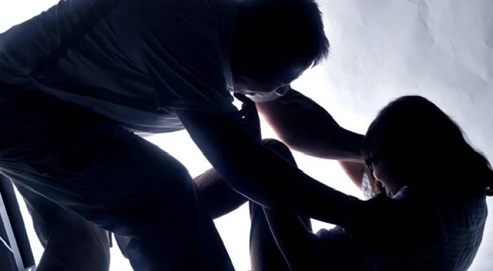Limiting defilement cases in Ghana
The sexual abuse of minors in Ghana remains a challenge, stealing children’s innocence and security, and leaving them filled with fear and violation.
Many victims are under 16, with some as young as three months old. Ghana’s legal system seeks justice for defilement victims but faces a unique challenge when the perpetrator is a child under 18 years old.
Section 1 of the Juvenile Justice Act, 2003 (Act 653) defines a juvenile as a person under 18 in conflict with the law. This article examines the legal framework surrounding defilement when the offender is a juvenile.
Prevalence, causes, statistics
Defilement is driven by factors such as socio-economic disparities, cultural norms and power imbalances. Victims of defilement often remain silent due to cultural stigma, victim-blaming and fear which hinders prosecution.
Between 2012 and 2014, the Greater Accra Regional Police Commander reported 25,468 cases of child sexual abuse, mainly by parents, teachers and neighbours.
A 2014 UNICEF study found that 120 million girls under 18 had been subjected to forced sexual acts. The World Health Organisation’s 2020 Global Status Report on Preventing Violence Against Children states that up to 1 billion children aged 2-17 years experience sexual violence annually.
Impact on victims
Defilement causes severe physical, psychological and social trauma, disrupting education and personal development.
In Republic v. Q – Suit No. R16/16/23, a 10-year-old girl defiled by a 17-year-old boy suffered life-changing injuries. Such incidents perpetuate cycles of suffering and marginalisation.
Understanding the law
Article 15(1) of the 1992 Constitution guarantees the dignity of all persons, but defilement violates this principle by subjecting victims to degrading acts. Section 101 of the Criminal Offences Act, 1960 (Act 29) defines defilement as the carnal knowledge of any child under 16, with a penalty of seven to 25 years’ imprisonment.
Defilement is a gender-neutral offence, applying to victims of any gender. The law imposes strict liability to protect minors, regardless of consent. Consent is irrelevant under defilement charges, as a child under 16 cannot give consent. The case Republic v Yeboah [1968] GLR 248 emphasised this point. In Eric Asante v.
The Republic, the Supreme Court of Ghana outlined that defilement involves three key elements: the victim being under 16, sexual intercourse occurring, and the accused being responsible.
Juvenile as ‘Offender’
Act 653 guarantees the rights of minors during legal proceedings. The law recognises that children can be responsible for certain actions and/or inactions which are offences in the eyes of the law.
UN Convention on the Rights of the Child recommends a minimum criminal responsibility age of 12 years, with an updated 2019 recommendation to age 14. In England & Wales, the criminal responsibility age is 10 while Ghana sets it at 12. Thus, the criminal responsibility threshold is country-specific.
Section 11 of Act 653 mandates the police to inform a parent, guardian, or close relative of a juvenile’s arrest promptly, with the right to legal advice. Juveniles must not be treated like adult offenders, leading to the creation of Juvenile Courts, and Section 2 emphasises their best interests.
Section 22 of Act 653 grants juveniles the right to remain silent, have representation and legal aid during proceedings. When a juvenile is found guilty, the Juvenile Justice Bench Book emphasises reformation, education and growth over punishment.
Juvenile courts can discharge the juveniles conditionally or unconditionally, release them on probation, commit them to a relative or correctional centre, or impose fines.
Section 46(1) of Act 653 limits detention periods for juveniles, and Section 46(7) mandates that juveniles must not be detained in adult prisons.
Current situation
News reports on May 26, 2024 about a 17-year-old boy who allegedly defiled a girl last year when she was 2 years old, highlights the gravity of defilement cases in Ghana. It was reported that the baby is struggling for her life due to the trauma and injuries she suffered.
As the alleged offender is a juvenile, the case falls within the jurisdiction of the Juvenile Court. This ensures rehabilitation and accountability. The Juvenile Court must, therefore, ensure justice while prioritising the offender’s potential for reform.
Call to action
Addressing defilement requires coordinated efforts from the government, law enforcement and civil societies. Improved police responsiveness, extensive awareness campaigns, and contributions from religious and educational institutions are crucial.
Society must collectively combat defilement to create a safe, empowered and supportive environment for children.
Conclusion
Defilement of a girl-child in Ghana is a severe injustice that needs immediate and unified action. Parents should ensure the child’s safety, seek medical and psychological support, and report incidents to authorities.
Breaking the cycle of silence, holding offenders accountable, and safeguarding the rights of every child under 16 is imperative to reduce defilement and create a safer society.
The writer is a pupil at Ghartey and Ghartey.
E-mail:jbadwi@yahoo.com



